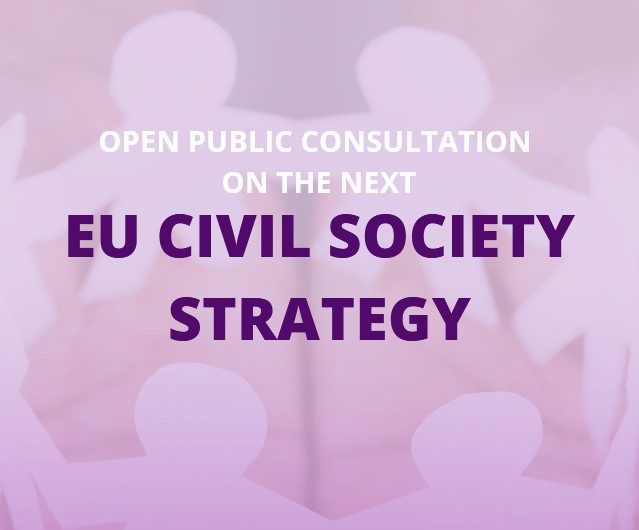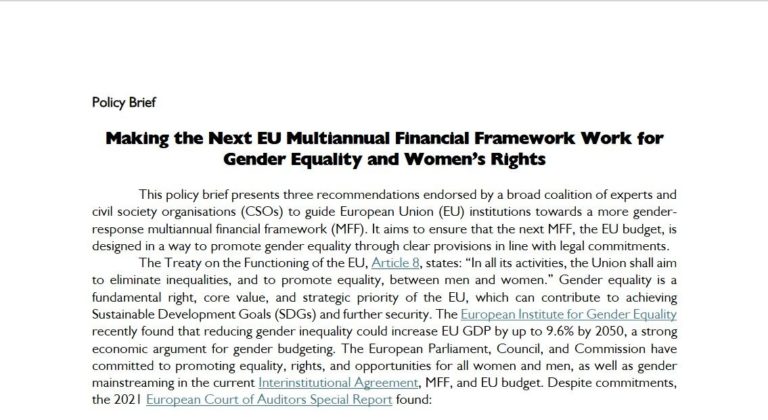[Lisbon, 16 January 2017] At the end of last year, Portugal marked a symbolic and historical day in the fight against sexual violence. On December 19, 2016 the Association of Women against Violence (AMCV), signed a protocol with the Deputy Minister, Eduardo Cabrita, and the Minister of Justice, Francisca Van Dunem, which aims to create the first Crisis Center to support women and girls who survived sexual violence in the city of Lisbon.
This will be the first specialised service of its type in Portugal. Feminist organisations promoting women’s human rights have long been fighting for women and girls in Portugal to be protected and supported in the context of sexual violence. Recently, and in partnership with European Women’s Lobby members from the Portuguese Platform for Women’s Rights (PpDM), the member organisation AMCV promoted the project “New challenges in the fight against sexual violence”, which aimed to place on the political agenda the need for prevention and intervention on sexual violence, with a view to defining new measures and specific public policies to combat sexual violence.
To date, Portugal does not meet the Council of Europe’s minimum standards for support services to combat violence against women, which stipulates that for every 200,000 women there should be a crisis center specializing in the protection of survivors of rape and in combating sexual violence.
By ratifying the Council of Europe Convention on preventing and combating violence against women and domestic violence, commonly known as the Istanbul Convention, Portugal is obliged to comply with its Article 25 – Support for victims of sexual violence, which stipulates that “Parties shall take the necessary legislative or other measures to provide for the setting up of appropriate, easily accessible rape crisis or sexual violence referral centres for victims in sufficient numbers to provide for medical and forensic examination, trauma support and counselling for victims.”
In November 2015, in the Concluding observations on the combined eighth and ninth periodic reports of Portugal, the Committee on the Elimination of Discrimination Against Women expressed concern about the lack of crisis centres and emergency services for victims of rape as well as the absence of standard protocols on gender-sensitive ways to deal with victims of rape for hospital staff and police. It recommended that the Portuguese State, by 2017, establish crisis centres and emergency services for victims of rape and sensitize hospital staff and the police on the assistance required in such cases as well as establish standard protocols dealing with victims of rape.
The Protocol signed in November 2016 is, certainly, the first step. Lisbon will be the only city in Portugal to have a service of this nature, made available by a feminist organization. The political commitment of its enlargement to the country will remain. For this to happen with the desired impact, it will be necessary to: design and implement a national Plan to combat sexual violence imbued with the feminist principles of security, protection and empowerment; creation of specialized services promoted by feminist organizations; creation and optimization of specialized community networks; and, finally, training for the specialization of professionals.
About the project “New Challenges in the Fight against Sexual Violence”:
This project was promoted by the Association of Women Against Violence in partnership with the Portuguese Platform for Women’s Rights, the Directorate-General for Health and the National Institute of Forensic Medicine and Forensic Sciences. The final aim of the project was to highlight, in the political agenda, the need for prevention and intervention in matters of Sexual Violence, with a view to defining new measures and specific public policies to combat this form of violation of Human Rights.
It targeted the professionals who work in this field and with the victims. To this end, a service office was created and quality procedures and standards were defined to allow for the definition of an integrated intervention model that articulates the existing specialized support resources: health, public safety, justice, and psychosocial support. In addition, the project entailed the implementation of a mutual aid and self-representation group, an online petition for the creation of specialized services in Portugal, training / information sessions, and the production of an information brochure. More information at: http://plataformamulheres.org.pt/projectos/novos-desafios-no-combate-a-violencia-sexual/
Communication from EWL Portuguese members. Find the article in Portuguese here



